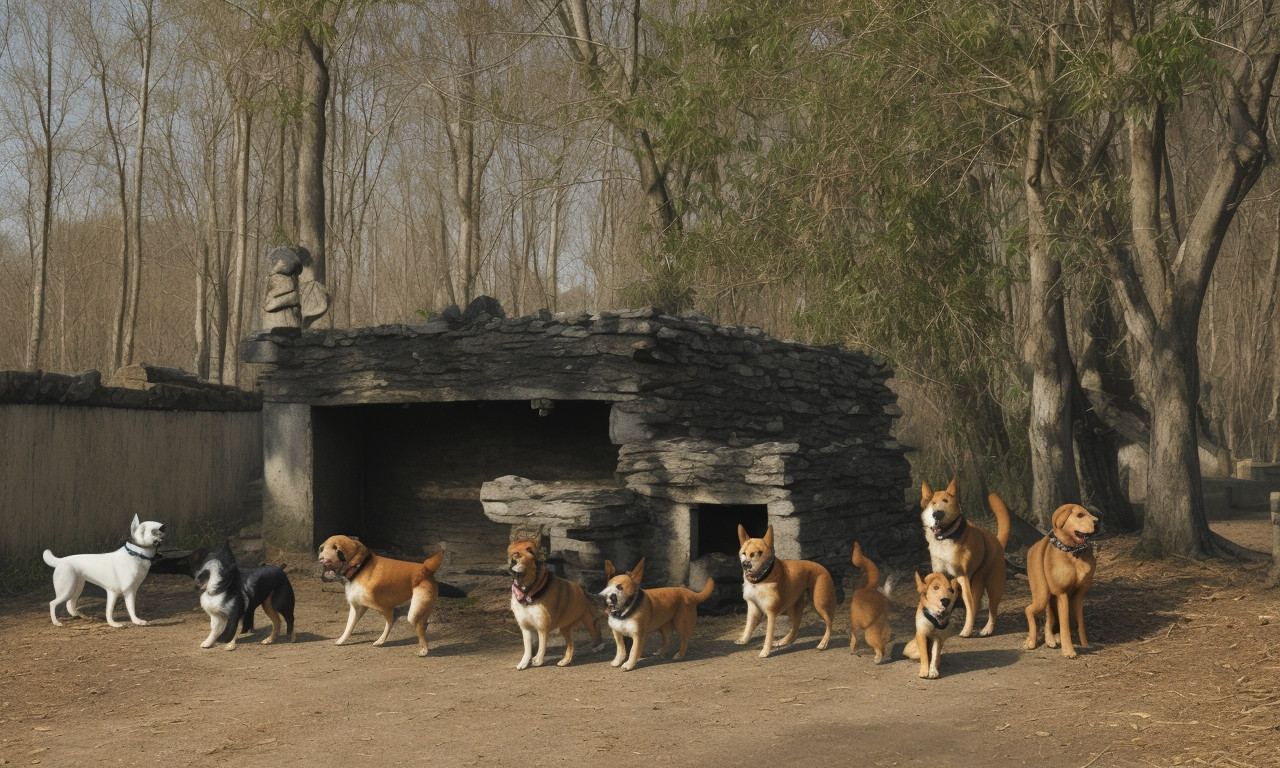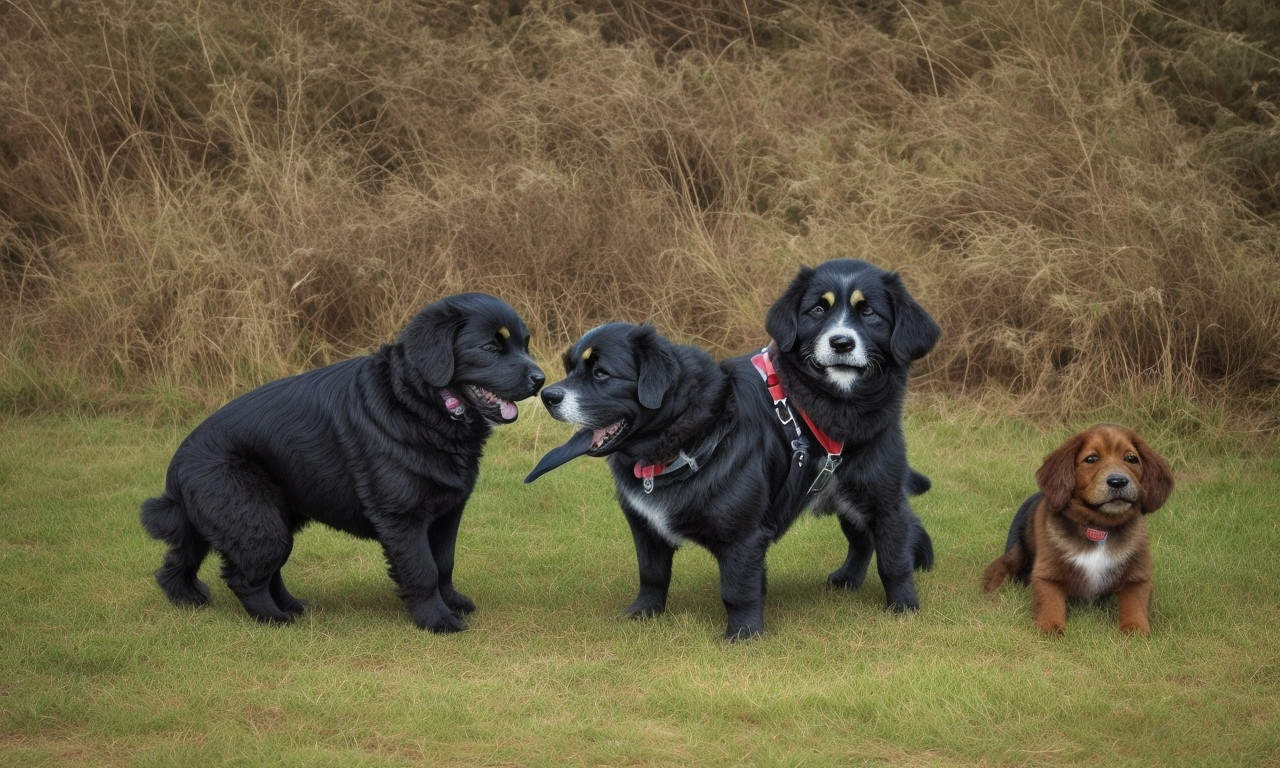Embarking on the delightful yet demanding journey of dog ownership? Pause your paw-adorned dreams for just a moment to dive into our revealing exploration of 13 Westie Pros & Cons: An Insight Before Welcoming One Home. Uncover the cheerful charisma and tenacious terrier traits that West Highland White Terriers bring to your hearth and home. Make an informed decision as we fetch the remarkable rewards and noteworthy nuances of life with a Westie, ensuring your next furry family addition is a love match that lasts a lifetime.
The 7 Westie Pros

West Highland White Terriers, commonly referred to as Westies, are a popular breed for a variety of reasons. Here are seven pros of owning a Westie:
-
Size: They are small and manageable, usually weighing between 15-20 pounds, making them a great choice for both apartment living and larger homes.
-
Personality: Westies typically have a friendly and sociable demeanor. They are known for being spunky, confident, and often have a cheerful disposition.
-
Independence: While they enjoy companionship, Westies are also capable of entertaining themselves. Their independent nature helps them to cope better when left alone for short periods.
-
Intelligence: Westies are bright and can be quick learners. They respond well to positive reinforcement training methods and are often successful in obedience and agility training.
-
Low-Shedding Coat: Their double coat consists of a soft undercoat and a harder outer coat. They are often touted as being hypoallergenic due to their low-shedding fur, making them a better choice for allergy sufferers.
-
Hardiness: Westies are a hardy breed, originally bred for hunting small rodents, which has given them a robust constitution.
-
Adaptability: Westies can thrive in various living situations, from country homes with lots of space to roam to urban apartments, as long as they get sufficient exercise and mental stimulation.
While Westies have many positive attributes, there are also potential cons to consider:
-
Grooming: Their distinctive white coats require regular grooming to prevent matting and to keep them clean, which can be both time-consuming and costly.
-
Health Issues: Like many purebred dogs, Westies are prone to certain hereditary health issues, including skin disorders and joint problems like patellar luxation.
-
Stubbornness: Their intelligence and independence can sometimes translate into stubbornness, making consistent training and socialization essential from an early age.
-
Prey Drive: Their hunting background means that Westies have a high prey drive, which can lead to chasing small animals and difficulty with off-leash reliability.
-
Barking: Westies can be vocal, and without proper training, they may bark excessively which could be a problem in noise-sensitive living situations.
-
Socialization Requirements: To prevent them from becoming overly territorial or aggressive, it’s important to socialize Westies well with other dogs and people, starting in puppyhood.
In summary, Westies are a delightful and popular breed with many attractive qualities, including their size, personality, and adaptability, but owning one can come with its challenges, such as grooming needs and hereditary health problems. Prospective owners should weigh these factors carefully to ensure a Westie is the right addition to their home.
1. Intelligence

Pros of Westies (West Highland White Terriers) Regarding Intelligence:
-
Quick Learners: Westies are often sharp-witted, which means they can pick up on commands and training with relative ease. Their intelligence makes them good candidates for obedience training and even more complex tasks.
-
Problem Solving Skills: Their intelligence isn’t just about following commands; Westies can be great at figuring things out for themselves, which can be both entertaining and advantageous for owners.
-
Adaptability: A Westie’s smartness allows them to adapt to new situations quickly, making them excellent companions for families that might have varied routines or need to travel.
-
Trainability for Dog Sports: Due to their bright minds, Westies can excel in dog sports like agility, tracking, and flyball. Engaging them in these activities can be a fantastic way to stimulate their intellect.
-
Good with Children and Other Pets: A smart Westie can learn to interact positively with children and other pets if properly trained and socialized.
Cons of Westies Regarding Intelligence:
-
Stubbornness: Their intelligence may sometimes translate into stubbornness. If a Westie decides they aren’t interested in a particular activity or training session, it may take some patience and creativity to get them engaged.
-
Boredom and Destructive Behavior: If not provided with adequate mental stimulation, a Westie can become bored, leading to destructive behaviors around the home as a means of self-entertainment.
-
Training Consistency: Being smart also means they can be manipulative. Westies might test boundaries to see what they can get away with, necessitating consistent training.
-
Independent Thinking: A Westie’s intelligence may lead to independent decision-making that doesn’t always align with what their owner wants. They may have their own ideas about what they should be doing at any given time.
-
Need for Mental Stimulation: Intelligent breeds like Westies require a lot of mental stimulation. Failing to provide this can leave a Westie with pent-up energy and might lead to behavioral issues.
-
Overconfidence: Sometimes their brains can lead them into trouble, especially if they overestimate their abilities or misjudge a situation, which can be a danger, particularly if off-leash or in unfamiliar environments.
-
Training Challenges for First-Time Owners: New dog owners might find the Westie’s mix of intelligence and independent thinking to be a challenge, as they can be less forgiving of training mistakes or inconsistencies than more laid-back breeds.
-
More Prone to Separation Anxiety: Their intelligence may make them more prone to separation anxiety, as they are capable of forming very strong bonds with their owners and may struggle when left alone.
When considering bringing a Westie into your home, it’s important to weigh these intelligent-related pros and cons. Offering them plenty of mental and physical exercise, consistent training, and lots of love can tap into the best aspects of Westie intelligence while mitigating some of the challenges.
2. Small but Tough

The West Highland White Terrier, commonly known as the Westie, is a breed loved by many for its energetic personality and adorable appearance. If you’re considering welcoming one into your home, it’s essential to weigh the breed’s various pros and cons. One key characteristic of the Westie is its small but tough nature:
Pros of the Westie’s Size and Toughness:
-
Adaptability to Living Spaces: The Westie’s small size makes it a suitable companion for apartment living, as long as it receives sufficient daily exercise.
-
Transportation Ease: Traveling with a Westie is more convenient due to its compact size. Whether it’s car rides or meeting airline cabin requirements, this breed is easier to manage.
-
Longevity: Smaller breeds often enjoy longer lifespans. A well-cared-for Westie can be a companion for many years, with some living well into their teens.
-
Spirited Personality: The tough demeanor of the Westie means it has a bold and brave personality. Despite its size, it’s not a timid dog and will often stand its ground.
-
Good Watchdogs: Their alertness and tendency to bark at unfamiliar sights and sounds make them excellent watchdogs.
-
Suitable for Various Activities: Westies are versatile when it comes to activities. They can keep up on long walks or hikes, yet they are just as happy playing games in the yard or at home.
Cons of the Westie’s Size and Toughness:
-
May Challenge Larger Dogs: Their toughness might lead them to unwisely challenge bigger dogs, which could result in injury.
-
Stubborn Streak: Their strong-willed nature can make training challenging. Consistency and patience are key with Westies.
-
Prone to Certain Health Issues: Despite their toughness, Westies can be prone to certain genetic health issues like skin conditions and patellar luxation.
-
Exercise Needs: Their energy needs to be channeled properly through daily exercise; otherwise, it could manifest as destructive behavior.
-
Barking: Their alert nature is great for watchdogging, but without proper training, Westies can develop excessive barking habits.
-
Possessive of Belongings: Their toughness can translate into possessiveness over toys and food, which requires careful management to avoid aggressive behavior.
-
Prey Drive: The breed was originally used for hunting small rodents, so they may have a high prey drive that can lead to chasing smaller animals.
Overall, the Westie is a loving, lovable, and spirited companion. However, its small but tough nature is a double-edged sword that potential owners must consider. With the right training, socialization, and care, the positives can outweigh the negatives, making a Westie a delightful addition to the right home.
3. They Love to Play

West Highland White Terriers, popularly known as “Westies,” are known for their spunky and playful nature. To provide an insight into what prospective Westie owners can expect, here is a list of pros and cons related to their playful characteristic.
Pros:
- Active Companions: Westies are lively and energetic pets that love to engage in play, making them excellent companions for more active individuals or families.
- Mental Stimulation: Their desire to play can lead to numerous opportunities for mental stimulation through games and interactive toys, which can help keep their minds sharp.
- Bonding Opportunities: Playtime is a fantastic way for owners to bond with their Westie, fostering a deeper connection and understanding between pet and owner.
Cons:
- Need for Attention: Their love for play means they often require a lot of attention and can become bored if not given enough mental and physical stimulation.
- Destructive Behavior: Without proper outlets for their energy, a Westie might turn to destructive behaviors, such as chewing or digging, to alleviate boredom.
- Excessive Barking: In their excitement or desire for play, some Westies may develop a habit of barking excessively, which might be an issue for those living in noise-sensitive environments.
4. They Are Loving with Their People

Westie, short for West Highland White Terrier, is a breed of dog known for its distinctive white coat and energetic personality. Before deciding to welcome a Westie into your home, it’s important to consider both their positive attributes and potential challenges.
Pros:
- Compact Size: Westies are small and adaptable, making them suitable for various living situations including apartments.
- Robust Health: Generally, Westies are a healthy breed with a lifespan of 12-16 years.
- Affectionate Nature: They form strong bonds with their owners and are known to be loving with their people.
- Strong Personality: Westies are confident and have a big-dog attitude, despite their small size.
- Low-Shedding Coat: Their double coat is relatively low-shedding, making them a good option for those who dislike fur around the house.
- Good with Kids: They can be great companions for children, as long as the children know how to interact with dogs respectfully.
- Trainable: With consistent training, Westies can learn commands and tricks.
- Loyal Companions: They are known to be loyal and devoted to their families.
- Good Watchdogs: Their alert nature makes them excellent watchdogs.
- Playful: Westies have a playful and spirited disposition.
Cons:
- Stubborn Streak: Training a Westie may be challenging due to their independent nature.
- Prey Drive: They were bred to hunt and may chase small animals, which can be problematic unless well-managed.
- Barking Tendency: Westies can be vocal, and if not properly trained, they might bark excessively.
- Grooming Needs: Their coat requires regular brushing and professional grooming to maintain their distinctive appearance and prevent matting.
- Potential Health Issues: While generally healthy, they can be prone to certain genetic conditions, such as skin disorders and joint issues.
Overall, West Highland White Terriers are wonderful and loving pets, but they do require commitment in terms of training and care. Understanding these pros and cons can help prospective owners determine if a Westie is the right fit for their home and lifestyle.
5. Moderate Exercise Requirements

West Highland White Terriers, commonly referred to as Westies, are an attractive choice for potential dog owners due to various characteristics they possess. Before you decide to bring one of these adorable pups into your home, it’s essential to recognize both their positive and negative aspects, including their exercise needs.
Pros:
-
Ideal Size for Various Lifestyles: Westies are small-sized dogs, making them a good fit for both apartment living and houses with more space. Their size allows them to comfortably adapt to different environments.
-
Friendly and Social: They are known for their friendly and social nature, which makes them excellent companions and family pets. Westies generally get along well with people and are often friendly towards strangers after proper introductions.
-
Independent but Affectionate: While they can be quite independent and self-entertained, Westies also have an affectionate side. They enjoy spending time with their owners and can be quite cuddly at times.
-
Low Shedding Coat: Westies have a double coat that sheds minimally, making them a more suitable option for people with allergies or those who prefer less hair around the house.
-
Easily Trainable: They are intelligent dogs and can be quite receptive to training when positive reinforcement techniques are used. This makes them a good option for first-time dog owners who are willing to invest time in training.
-
Moderate Exercise Requirements: Westies require a moderate level of exercise, which is often manageable for many owners. Daily walks and play sessions are usually enough to keep them healthy and content.
-
Good Watchdogs: They are alert and will bark to notify their owners of anything unusual, making them good watchdogs despite their small size.
Cons:
-
Prone to Certain Health Issues: Westies can be prone to health problems such as skin allergies, patellar luxation, and craniomandibular osteopathy. Regular veterinary check-ups and care are necessary.
-
Stubborn Streaks: While trainable, Westies can have a stubborn streak that requires patience and consistency in training to overcome.
-
Strong Prey Drive: Their instinctual prey drive can lead them to chase after small animals. It’s important to keep them on a leash during walks and ensure that your yard is securely fenced.
-
Can Be Vocal: Their watchdog tendency comes with a downside – they can be barkers. This may be a challenge if you prefer a quiet home or have close neighbors.
-
Regular Grooming Needed: Despite their low shedding, the Westie’s coat needs regular grooming to prevent matting and to keep it in good condition.
-
Potential for Digging: They can have a propensity for digging, so you may need to train them to channel this habit appropriately or safeguard your garden.
Understanding these pros and cons of Westies, including their moderate exercise needs, will ensure that you make an informed decision when considering adding one to your family. They can be a delightful companion with the right owner who is prepared to address the challenges and take advantage of the joys that come with owning a Westie.
6. Minimal Shedding

West Highland White Terriers, or “Westies,” are renowned for their bright white coats that are full of personality and charm. If you’re considering welcoming a Westie into your home, it’s important to understand both the positive aspects and potential challenges associated with this breed. Here’s a list of pros and cons focusing on their trait of minimal shedding.
Pros:
-
Allergy-Friendly: Westies are often recommended for people with allergies because they tend to shed less than other breeds, which can mean fewer allergens in the home.
-
Cleaner Home: Minimal shedding implies less hair on your furniture, carpets, and clothing, which makes it easier to keep your home clean.
-
Less Grooming Maintenance: Westies do not need as much brushing when compared to heavy shedders, saving time and effort in daily pet care routines.
-
Year-Round Consistency: With their consistent shedding pattern, you won’t have to deal with seasonal fur explosions, making it easier to manage grooming and cleanliness.
-
Visually Appealing: A Westie’s coat stays more presentable and petting is more enjoyable due to less loose hair.
Cons:
-
Regular Grooming Still Required: Westies need regular grooming to keep their coat in good condition. Their hair can become matted if not properly cared for.
-
Skin Sensitivities: While they shed minimally, Westies can have sensitive skin that requires attention to prevent issues.
-
Expense Of Grooming: Professional grooming can become a regular expense, as Westies require trimming and stripping of their coat to maintain their distinctive appearance.
-
Not Completely Shed-Free: While minimal, Westies do still shed some hair. Absolute zero shedding is a myth for most dog breeds.
-
Potential for Allergenic Saliva and Dander: Shedding is only one source of allergens; their saliva and dander can also cause allergic reactions in sensitive individuals.
-
Risk of Over-Grooming: Without proper knowledge or advice, there’s a risk of over-grooming which can damage their coat and skin.
-
Heat Sensitivity: Their dense coat means they can become uncomfortable in hot weather, so they need shade and hydration to prevent overheating.
In terms of minimal shedding, Westies present an appealing option for many potential dog owners, especially those who place a high value on cleanliness and are possibly dealing with allergies. However, it’s crucial to weigh these benefits against the responsibilities and particular needs of the breed when considering adding a Westie to your family.
7. Alert

One of the most attractive traits of a West Highland White Terrier, often simply called a Westie, is their alertness. This breed is known for its keen senses and quick reactions, which can make them excellent watchdogs. They are likely to be aware of any unusual activities or sounds in the environment and are prone to bark to alert their owners of anything out of the ordinary. Their heightened alertness is both a pro and a con. On the one hand, it can provide an added sense of security for their family, as they are always on the lookout. On the other hand, this trait can sometimes lead to excessive barking, which might require training to manage properly and could be an issue for owners living in close proximity to neighbors, such as in apartment settings.
The 6 Westie Cons

The West Highland White Terrier, or Westie, is a popular choice for many dog enthusiasts, but like any breed, it comes with its own set of challenges. Here is an insight into the six potential cons of welcoming a Westie into your home:
-
Prone to Skin Issues: Westies may suffer from skin conditions like allergies or dry skin, which can require regular veterinary care, specialized grooming products, and possibly diet restrictions.
-
Stubborn Streak: Westies are known for their strong-willed nature, which can make training a challenge. They require consistent and patient training to overcome their independent attitudes.
-
Requires Regular Grooming: Maintaining a Westie’s distinctive white coat demands regular grooming. Without consistent brushing and clipping, their fur can easily become matted and unkempt.
-
Can be Yappy: Westies have a tendency to bark, which can be a pro or con depending on your living situation. Their high-energy vocalizations might not be suitable for apartment living or for families with very young children.
-
Terrier Prey Drive: As with many terrier breeds, Westies possess a high prey drive, which may cause issues if you have smaller pets at home. They can also be prone to chasing after small animals during walks, so a good recall command is vital.
-
Health Issues: Unfortunately, Westies are predisposed to certain health conditions, such as Pulmonary Fibrosis, Craniomandibular Osteopathy, and Legg-Calvé-Perthes Disease. Prospective owners should prepare for the possibility of dealing with such health concerns and the associated costs.
8. Stubbornness

Many West Highland White Terrier, or Westie, enthusiasts are charmed by the breed’s energetic and friendly demeanor. However, like any other breed, the Westie has its own set of distinct traits that can be both beneficial and challenging for potential owners. It’s crucial to consider these characteristics, such as stubbornness, carefully before deciding to welcome a Westie into your home.
Pros of the Westie’s Stubbornness:
-
Personality - A Westie’s stubborn streak often contributes to its unique and spunky personality, which many owners find endearing and entertaining.
-
Determination - Stubbornness in Westies can sometimes translate into perseverance and determination. This can be particularly helpful in activities like dog sports where persistence is key.
-
Independence - Their willful nature often means Westies are quite independent. This can make them less needy and more content to spend some time on their own, compared to other, more dependent breeds.
-
Trainability Challenges - While it might seem counterintuitive, the challenge of training a stubborn dog can be rewarding. It encourages owners to develop patience and improve their training skills.
Cons of the Westie’s Stubbornness:
-
Training Difficulty - Training a stubborn Westie can require more time, patience, and consistency compared to more docile breeds.
-
Strong-Willed Nature - A stubborn Westie might be harder to control, especially for inexperienced dog owners who may struggle with establishing leadership and consistent rules.
-
Resistance to Obedience - Westies may not always obey commands, especially if they are not convinced of the reason behind them or if they’re not properly motivated.
-
Selective Listening - Westies may exhibit a ‘selective deafness,’ particularly when distracted or more interested in something else than listening to their owners.
-
Housebreaking Challenges - Stubbornness can make housebreaking more of a trial, requiring plenty of patience and a strict potty routine.
In light of these pros and cons, it is essential to approach the prospect of owning a Westie with a realistic outlook. Understanding and patience are key. Positive reinforcement training methods often work best with stubborn breeds like the Westie. Engaging their interest with treats, praise, and play can motivate them to learn and follow commands. It’s also important for potential Westie owners to be consistent and firm, setting clear boundaries and maintaining a routine that helps their pets understand what is expected of them.
Reflecting on the Westie’s stubbornness, and preparing strategies to manage it, will help create a harmonious relationship between the dog and its human companions, ensuring that everyone can enjoy the delightful and loving nature that these dogs can offer.
9. They Can Be Territorial

West Highland White Terriers, known as Westies, are small yet confident dogs with a lot of personality. Before deciding to bring one into your home, it’s essential to consider both the positive aspects and potential challenges of owning this breed. Let’s explore one specific trait:
Territorial Behavior
Westies are known for their territorial instincts, which can manifest as both a pro and a con depending on your situation and how you handle it.
Pros:
-
Alert Watchdogs: Their territorial nature makes them excellent watchdogs. Westies are likely to alert you to any strangers approaching their domain, offering an added sense of security.
-
Loyalty: A Westie’s sense of territory extends to their family as well. They are often very protective of their owners, displaying loyalty and affection.
-
Independence: This territorial trait stems from their independent nature, which can be a plus for owners looking for a dog that is not overly clingy.
Cons:
-
Barking: To assert their territory, Westies may bark more than some other breeds, which can become an issue, especially in noise-sensitive environments like apartment complexes.
-
Aggression towards other animals: If a Westie considers another animal a threat to their territory, they might become aggressive, which can be a problem if you have other pets or if your dog is regularly in contact with other animals.
-
Training and socialization challenges: Westies might be resistant to training that conflicts with their territorial instincts. They may require more effort and consistency to train them to be sociable with strangers and other animals.
-
Space considerations: Even though they are small, they might not be ideal for small living spaces unless well-trained because they could feel the need to guard the place constantly.
-
Potential for stress: In highly trafficked environments, a Westie’s territorial nature could lead to anxiety if they constantly feel the need to defend their space.
-
Behaviour management: Owners need to manage territorial behavior proactively to ensure it does not lead to problematic behavior, such as excessive chewing or digging to mark territory.
-
Possible issues with children: A territorial dog might not always be best for homes with small children who may inadvertently provoke the dog by invading its perceived space or touching its belongings.
When considering adding a Westie to your family, understanding their territorial nature can help you prepare for these challenges and capitalize on the benefits of this characteristic. Proper training, socialization, and setting boundaries can mitigate the less desirable aspects and help ensure your Westie becomes a well-behaved and cherished family member.
10. Their Coat Can Get Matted

West Highland White Terriers, affectionately known as Westies, are popular for their charming looks and spirited personality. However, like with any dog breed, there are both pros and cons to consider before bringing one into your home. One significant aspect to keep in mind about Westies is their coat care.
Pros:
- Hypoallergenic Qualities: Westies have a double coat that consists of a soft undercoat and a rough outer coat, which can be beneficial for allergy sufferers. Their fur does not shed in the same way as many other breeds, meaning less hair around the house.
Cons:
- Their Coat Can Get Matted: Despite the hypoallergenic benefits, Westies do require regular grooming to prevent their fur from becoming matted. The coarse outer hair can easily tangle if not brushed regularly, which can lead to matting. Matting isn’t just an aesthetic issue—it can be painful for your Westie and can lead to skin irritation or infection if left unaddressed.
As a prospective Westie owner or someone considering this breed, it’s crucial to be prepared for the grooming commitment. Regular brushing, bathing, and even professional grooming sessions will be necessary to keep their coat in top condition. This task can be time-consuming and potentially costly, so it’s important to factor this into your decision-making process when thinking about adding a Westie to your family.
11. Prone to Health Problems

West Highland White Terriers, commonly known as Westies, are small but robust dogs with bright, engaging personalities. While they have many positive attributes, potential owners should be aware of the various pros and cons associated with this breed, particularly their proneness to health problems.
Pros:
-
Friendly and Affectionate: Westies are known for their friendly nature and often form strong bonds with their human companions.
-
Good with Older Children: They can be great with children, especially older ones who understand how to interact with dogs respectfully.
-
Intelligent and Trainable: These dogs are quite intelligent, which can make them responsive to training.
-
Small and Manageable Size: Their small size makes them suitable for apartment living and easier to manage physically.
-
Energetic and Playful: Westies have a lot of energy and enjoy playtime, which can be great for active families.
-
Independent Spirit: Their independence means they can be okay with being left alone for short periods.
-
Minimal Shedding: They typically shed less than many other breeds, which can be a bonus for keeping the house clean.
-
Terrific Watchdogs: Westies are alert and can be good watchdogs, often barking to alert their owners of anything unusual.
-
Long Lifespan: With proper care, Westies can have a long lifespan, often living up to 15 years or more.
-
Adaptable: They are versatile and can thrive in various environments, from apartments to large country homes.
Cons:
-
Prone to Health Problems: Westies can suffer from a range of health issues. Some common problems include skin disorders like atopic dermatitis, pulmonary fibrosis (a lung disease), and issues such as patellar luxation and cranial cruciate ligament rupture in their joints. Potential owners should be prepared for possible veterinary visits and treatments.
-
Stubborn Streak: Their intelligence comes with an independent streak that can sometimes appear as stubbornness, making training a challenge at times.
-
Barking Tendencies: While their alertness is a plus, it can also mean that they bark a lot, which can be a nuisance if not properly managed.
Before welcoming a Westie into your home, it’s essential to consider these pros and cons. While they make affectionate and lively companions, their susceptibility to health issues is an important factor that requires careful consideration and commitment to their well-being. It’s advisable to discuss with breeders, veterinarians, and other Westie owners to fully understand the care that this beautiful breed needs.
12. Prone to Barking

West Highland White Terriers, affectionately known as Westies, are a popular breed with a range of characteristics that can make them both a delightful and challenging pet. Below is an insight into the pros and cons associated with Westies, focusing on their tendency to bark:
Pros:
- Charming Personality: Westies possess a bright and vivacious personality that charms their owners. Their alertness adds to their endearing qualities.
- Loyal Companions: This breed is known for its loyalty and tends to form strong bonds with its family members.
- Active and Playful: Westies have high energy levels, making them great companions for play and exercise.
- Intelligent: They are smart dogs that can be trained well with patience and consistency.
- Good Watchdogs: Their alert nature makes them excellent watchdogs.
- Small Size: Being a small breed, they are suitable for both apartment living and houses with yards.
- Confident and Independent: Westies have a confident and independent streak, which can be a joy to watch.
- Adaptable: They generally adapt well to different living situations and environments.
- Minimal Shedding: Their coat doesn’t shed much, which can be a plus for housekeeping.
- Good for Allergic Owners: Their coat is also considered more hypoallergenic than many other breeds.
Cons:
- Stubbornness: Despite their intelligence, Westies can be quite stubborn at times, which can make training a challenge.
- Prone to Barking: They are often quick to sound the alarm at every new sight and sound, and without proper training, this can become an issue.
- Grooming Needs: Their white coat requires regular grooming to keep it clean and tangle-free.
- Health Concerns: Like many purebred dogs, Westies can be prone to certain genetic health issues.
When considering the characteristic of being prone to barking, this can be both a pro and a con. Barking is a natural means of communication for dogs, and in the case of Westies, their inclination to bark is coupled with their watchdog abilities. This can be advantageous when it alerts owners to potential dangers or unwelcome visitors. However, without appropriate training to manage their barking tendencies, it could lead to excessive noise, which might be an issue for owners who live in close proximity to neighbors or those who prefer a quieter environment.
Training and establishing communication with your Westie is key to managing barking behavior. It’s important to address this trait early on through consistent training and possibly seek help from a professional trainer to mitigate excessive barking. Teaching cues like “quiet” or “enough,” coupled with providing ample exercise to expend their energy, can help keep barking under control and ensure that your Westie’s vocalizations don’t become a nuisance.
13. They Love to Dig

Owning a West Highland White Terrier, also known as a Westie, comes with its own set of advantages and disadvantages that potential owners should consider before welcoming one into their home. Here are some pros and cons to think about, including their propensity to dig:
Pros:
- Loyal Companionship: Westies are known for their strong loyalty to their owners, making them wonderful companions.
- Size: Their small size makes them suitable for living in both apartments and houses alike.
- Energy and Playfulness: Westies tend to be energetic and playful, which can be a source of entertainment and joy for families.
- Intelligence: These dogs are intelligent and can be trained relatively easily, although the training should start early.
- Low-Shedding Coat: Westies have a coat that sheds minimally, which is a plus for people who are concerned about fur in their homes.
- Good Watchdogs: Their alert nature makes them good watchdogs as they will likely bark at unfamiliar sounds or visitors.
- Long Lifespan: Westies usually enjoy a long life when well taken care of, often reaching 12-16 years.
- Adaptable: They can adapt to various lifestyles, as long as they get their daily exercise.
- Independent Spirit: While they are loyal, they also have an independent streak which some owners appreciate.
Cons:
- Stubbornness: Their intelligence often comes with a stubborn streak, which might make training a challenge at times.
- Health Issues: Like many purebred dogs, Westies may be prone to certain genetic health conditions, such as skin allergies and joint problems.
- Grooming Needs: Their beautiful white coats require regular grooming to keep them clean and free from mats.
- They Love to Dig: Westies were originally bred to hunt small game, which may explain their love for digging. This can be an issue if you prize your garden or lawn, as they might dig holes out of instinct or for entertainment. It’s important to provide them with enrichment and discourage digging in inappropriate areas.
When considering bringing a Westie into your home, it is important to balance these pros and cons. They can fit wonderfully into the right family dynamics and living situations, but like all breeds, they have unique characteristics that should be matched to an owner’s lifestyle and capabilities. If a prospective owner is well-prepared for the challenges, such as their digging behavior, and ready to embrace the positive aspects of their personalities, a Westie could make a delightful and loving addition to their family.










